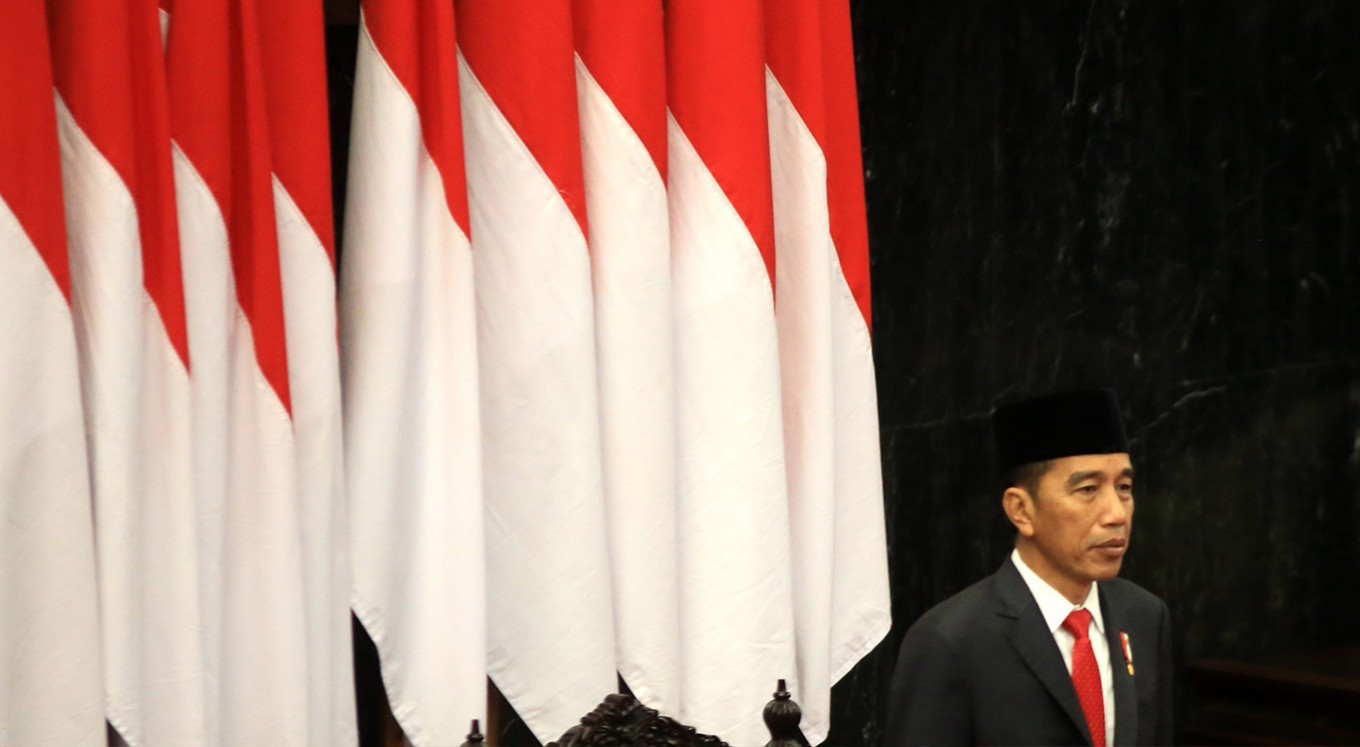Popular Reads
Top Results
Can't find what you're looking for?
View all search resultsPopular Reads
Top Results
Can't find what you're looking for?
View all search resultsJokowi wants to tap into Didi Kempot's 'sahabat ambyar' to promote Pancasila among youth
President Joko “Jokowi” Widodo appeared to be speaking the language of the youth as he ordered the streamlining of the values of the state ideology, Pancasila, to tap into media familiar to the country’s younger generations.
Change text size
Gift Premium Articles
to Anyone
P
resident Joko “Jokowi” Widodo appeared to be speaking the language of the youth as he ordered the streamlining of the values of the state ideology, Pancasila, to tap into media familiar to the country’s younger generations.
Speaking before members of the Agency for Pancasila Ideology Education (BPIP) — which spearheads efforts to promote Pancasila in Indonesia — and state officials on Tuesday, Jokowi said Pancasila should be popularized among youngsters through their favorite sports, music and movies.
“In terms of music, it’s OK if we tap into Didi Kempot or tap into the sad boys and sad girls or sahabat ambyar, it’s OK,” Jokowi said, “It’s OK to ask them to insert lyrics [about Pancasila] in [Didi's song] “Pamer Bojo”; music is the medium that young people like.”
The terms sad boys, sad girls and sahabat ambyar (community of the brokenhearted) referred to the fans of popular campursari (a blend of traditional Javanese and modern music) singer Didi Kempot, who in recent years saw his popularity rising among the youths due to his lovelorn Javanese song lyrics.
Hailing from Surakarta, Central Java -- where Jokowi himself served as a mayor from 2005 to 2012 -- Didi is affectionately referred to by his fans as “Lord Didi” or the "Godfather of Broken Hearts”.
Jokowi said he aimed to make Pancasila more grounded among the younger generations, saying that "it's dangerous" if Indonesian youths could not comprehend Pancasila's values.
To accelerate the mainstreaming of the state ideology among them, Jokowi said it was important for the BPIP and relevant ministries to also tap into social media.
"We have to flood the grand narrative [of Pancasila] through these things," Jokowi said, mentioning several social media platforms most liked by youth, such as Instagram, Twitter and Snapchat, as he warned that otherwise the promotion of Pancasila would be “taken over” by other ideologies.
Popularizing Pancasila and making the country’s population, especially the younger generations, internalize the values of the state ideology in their daily lives has been among the tasks that Jokowi’s administration has pursued since his first term in office.
Pancasila, initiated by one of the nation’s founding fathers, Sukarno, comprises five principles: Belief in God, a just and civilized humanity, the unity of Indonesia, democracy and social justice.
The government has established 36 subpoints to elaborate the principles, which were mandatory to teach in school during Soeharto’s New Order era. However, since his downfall in 1998, education on the details of the state ideology has not been prioritized in schools.
Jokowi said Pancasila’s principles should also be reflected in every policy, rule and regulation issued by all ministries and state institutions. “Otherwise we don't know where we're heading [as a country]," he added on Tuesday.










